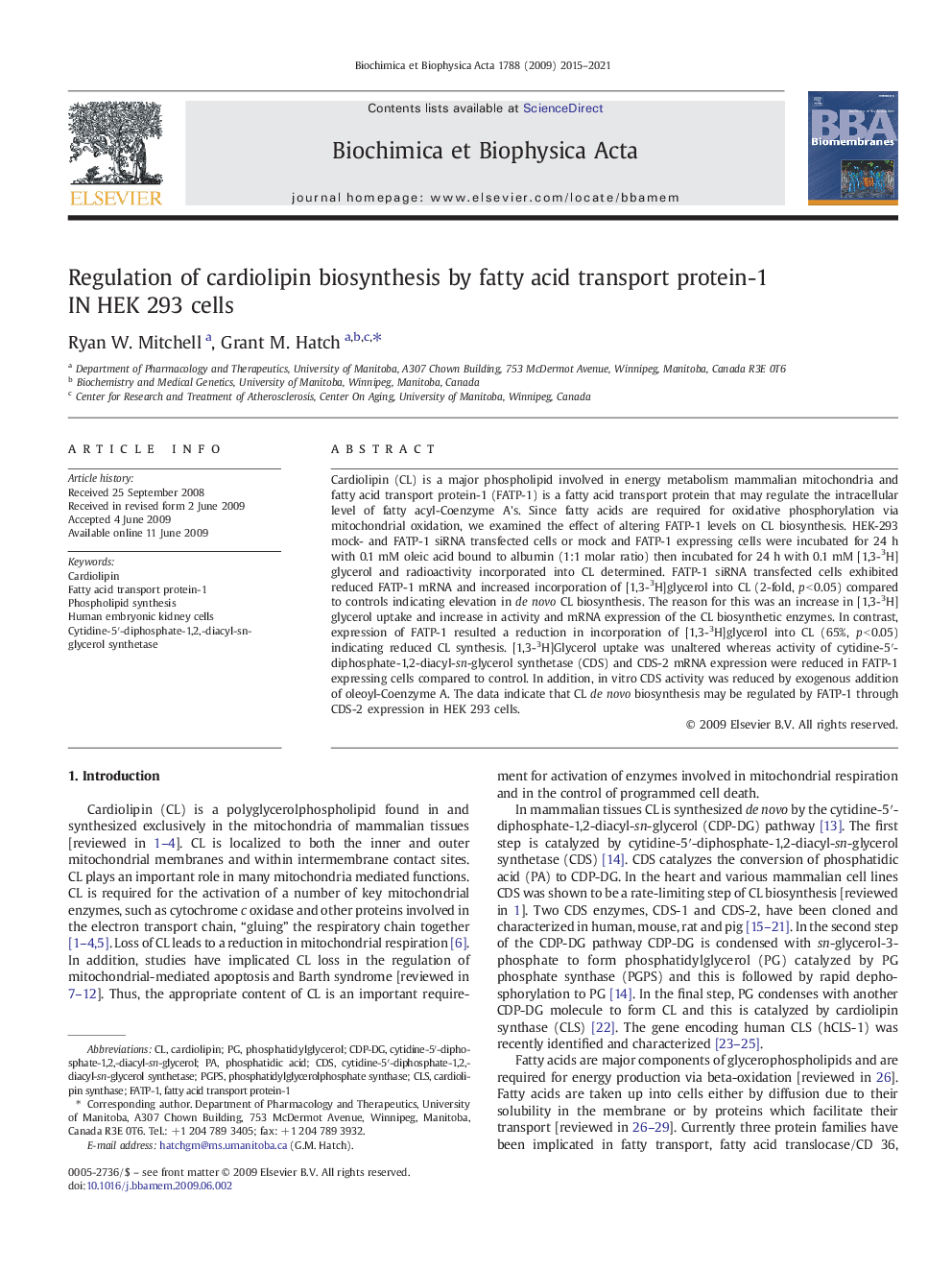| Article ID | Journal | Published Year | Pages | File Type |
|---|---|---|---|---|
| 1944999 | Biochimica et Biophysica Acta (BBA) - Biomembranes | 2015 | 7 Pages |
Cardiolipin (CL) is a major phospholipid involved in energy metabolism mammalian mitochondria and fatty acid transport protein-1 (FATP-1) is a fatty acid transport protein that may regulate the intracellular level of fatty acyl-Coenzyme A's. Since fatty acids are required for oxidative phosphorylation via mitochondrial oxidation, we examined the effect of altering FATP-1 levels on CL biosynthesis. HEK-293 mock- and FATP-1 siRNA transfected cells or mock and FATP-1 expressing cells were incubated for 24 h with 0.1 mM oleic acid bound to albumin (1:1 molar ratio) then incubated for 24 h with 0.1 mM [1,3-3H]glycerol and radioactivity incorporated into CL determined. FATP-1 siRNA transfected cells exhibited reduced FATP-1 mRNA and increased incorporation of [1,3-3H]glycerol into CL (2-fold, p < 0.05) compared to controls indicating elevation in de novo CL biosynthesis. The reason for this was an increase in [1,3-3H]glycerol uptake and increase in activity and mRNA expression of the CL biosynthetic enzymes. In contrast, expression of FATP-1 resulted a reduction in incorporation of [1,3-3H]glycerol into CL (65%, p < 0.05) indicating reduced CL synthesis. [1,3-3H]Glycerol uptake was unaltered whereas activity of cytidine-5′-diphosphate-1,2-diacyl-sn-glycerol synthetase (CDS) and CDS-2 mRNA expression were reduced in FATP-1 expressing cells compared to control. In addition, in vitro CDS activity was reduced by exogenous addition of oleoyl-Coenzyme A. The data indicate that CL de novo biosynthesis may be regulated by FATP-1 through CDS-2 expression in HEK 293 cells.
